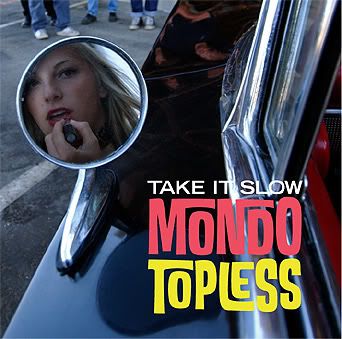
Communion
Sweden knows rock ‘n roll. Name a bad rock band from Sweden. They’re few and far in between. The Soundtrack of Our Lives (TSOOL) are this superpsychedelic rock burst from there. A big sound, plenty of odd musical and lyrical happenings, and a vast array of anthemic songs with different tempos on their double release of Communion.
By nature, TSOOL are required to be a psychedelic band since they’re a six piece. A lot of it is still power chord, rock based, but one gets a lot of layers to go through that accompany those chords. The opening “Towers of Babel On” is a slow buildup that turns into an invitation - “Come on to The Towers of Babel On”, but like many of their songs, it’s a double entendre in referring to sites of both biblical chaos and complex civilization. However, many of their song titles have a similar wit in title such as “Pineal Gland Hotel”, “MENSA’s Marauders”, and others.
Usually, different genres communicate their own emotions and are fairly limited in their scope of topics. Although there isn’t hat much to choose from, TSOOL is successful at combining ideas into ironies on songs like “Ra 88”, which is the periodical chart assignment for Radium, a metal that’s bright white, turns black once exposed to air, and is highly radioactive. On one hand, the metaphor is used to describe freedom of expression - “Radium’s burnin’ inside of me, brilliant white that I’m bound to set free” while having to confront the ultimate destruction that anger brings - “Radium’s bad for my century, something I cannot deny when I’m free.” This is a modern lesson on anger and how one feels good to let it out, but how it can consume everything around it, much like someone can be mad over the state of one’s life or the world, but that emotion can ultimately nurture negativity. Naturally, this is communicated through a song that is nearly cathartic in rock volume.
In many ways, TSOOL take on the chaos of modern life and neuroses with most of their songs that can poke fun at the dysfunction of everyday life. It’s almost as if Robyn Hitchock’s “Uncorrected Personality Traits” is elaborated on to describe most adults as needing a good therapist in songs like “Distorted Child.” They take it a step further by describing how it leads to alienation in much darker songs like “Second LIfe Replay”, a soft description of emotional suicide with a realization that one’s still alive, stuck in their own head, and will be around the next day to live again.
Alienation and detachment reaches a climax on the first album with a cover of “Fly” by Nick Drake. The song takes the sense of fading that his soft voice and simple melodies communicated so well, but TSOOL turns it into a building rock song that’s somehow more intense but also adds complimenting melodies that give a sense of hope. The arrangements gives one a sense that TSOOL have a sound comparison to if Nick Drake sat in with The Who for The Lighthouse Sessions. The songs have both the sonic power and the attention to arrangements that Pete Townshend perfected, but possess a lot of careful and simple subtleties like Drake.
Communion as a double album can seem a little disconnected. The first album is powerful that one finds themselves more involved. The second album broadens musically with slower tempo but still engaging music such as the instrumental “Digitarian Riverbank” and more folksy oriented songs like “Flipside.” Honestly, it was hard to listen to the second album until recently, which is bad for a timely review after holding on to Communion, but it’s also like discovering a second great album. The songs carry on with the same depth as the first album but often have simpler, American rock approaches such as “Lost Prophets in Vain”. One even gets a pure ‘70s Who blast on “Reconnecting The Dots” with added sitars.
Two albums is a lot of material. Communion has its share of moments where one is anticipating something greater, but the songs seem to flow and are good, but don’t quite live up to the others. Nevertheless, the majority of the songs are always full of brilliant, loud, melodic and introspective rock. Despite a really artful approach and the range of tempos and instrumentation, Communion RAWKS, only it might encourage more attention for the times when certain songs don’t reach out and grab you. Especially attention grabbling is the almost early ‘90s Manchester, easy feel of “Utopia”, which breaks into a louder tempo change that adds a hard rock angst.
Communion has 25 songs. It’s a lot to go through, but it’s a great thing to go back and find new songs that one finally “gets” at different times. It’s heavily melodic, but rarely dull. The songs are both beautiful, angry, and uplifting. There are competing dualities between the more elaborate and the simple, both illustrated in the louder and softer songs. Surprisingly, the album remains cohesive. It’s definitely challenging, but never goes strays into territory that removes the songs from rock and simpler origins. Summarily, if one loves Who’s Next and can relate to the power and melody of the songs and how they stand up to time as great rock songs, Communion is the next progression. Quite amazing.
Flipside







No comments:
Post a Comment